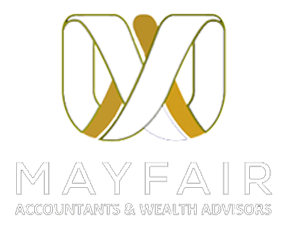When a director signs a personal guarantee for business debts it can ensure recovery of monies owed to creditors. But, as this article explains, they should consider the consequences carefully before entering into such an arrangement
With businesses under increasing pressure from banks and creditors to provide guarantees over directors’ personal assets in order to secure new credit facilities or loans now is the time for directors to be taking serious stock of their position. Existing credit arrangements are also a cause for concern – borrowers who have borrowed heavily against property may find that any future fall in the value of property could leave them with little or no equity – if their lender requires them to sell – and potentially facing bankruptcy proceedings. In some cases lenders will not lend without guarantees from directors/shareholders.
There are a number of steps a director can take to protect their personal position, including:
– Having an up-to-date shareholders’ agreement in place which sets out the rights and obligations of the directors and shareholders;
– Reviewing and if necessary amending articles of association to ensure they reflect how the company is currently being run and that all relevant decisions are taken by a unanimous decision of the directors;
– Taking out directors’ loan accounts to ring fence borrowings against specific assets. This will also provide some protection in the event that the company becomes insolvent as the director’s loan account is not an unsecured creditor;
– Putting in place guarantees over specific assets rather than giving a general guarantee.
– Taking out Directors’ Indemnity Insurance; and
– Ensuring that the personal guarantees are documented properly in accordance with the law, particularly when entering into new arrangements.
Minimizing risk for yourself and your company is important when borrowing money from banks or other third parties because there can be serious consequences if directors do not take care to ensure their personal position is protected. If a business fails to repay debts owed to a creditor, whether it has been trading profitably or not, directors who have personally guaranteed those debts could lose their homes or other property if they wish to avoid bankruptcy proceedings themselves.
They may also face legal proceedings which claim monies from them personally. In effect, they will have been “stripped bare” – with creditors able to take all of their assets.
Directors’ Loans- Tax Pitfalls
Pitfall 1: Use of company funds
If a director borrows money from the company, instead of putting it into their personal bank account, this may result in tax charges. While the loan would be treated as if it is an interest-free loan by both parties (the director and the company), there will be tax consequences for the director depending on how long they have held onto the cash which should otherwise have been paid to them.
If a director takes £10,000 out of business accounts to buy shares, but then only pays themselves back half over time via borrowing against those shares, they could face income tax at 45% on £5000 (£5000 is equivalent to 5% of total capital). This ignores any possible corporation tax charge that would apply on that money if it had been taken out of the business.
Pitfall 2: Personal loan interest relief
This is a complicated area, but one example would be where a director lends money to their company in order to buy shares, but then also borrows this money, at an interest rate of 10%, from the bank in order to fund living expenses. They pay back £50 per month towards both loans. The personal loan is actually receiving tax relief since it is being charged 10% interest whereas that same money lent to the company only receives 5% because corporation tax applies. This means that for every £100 paid off on the share portion of the loan, only £50 goes towards paying down overall debt and thus £50 less tax will eventually be paid.
Pitfall 3: Effect on directors’ loan account
If a director incurs interest-free personal borrowing, this is usually added to the company’s directors’ loan account (DLA) reducing the amount that can be offset against future profits which are subject to corporation tax. This means that if a director borrows money without charging interest or at an interest rate lower than the business pays on its debts, this could mean less tax relief for the company in later years because of these charges being added to their DLA.
Pitfall 4: Level of indebtedness
The amount owed by any one director must not exceed £500,000 otherwise HM Revenue & Customs will apply surcharge penalties. If the debts are spread across the company’s directors then this won’t be a problem.
Pitfall 5: The bank
If you borrow money from your bank, there is no specific charge for borrowing it as an individual rather than at least sharing the loan with other executives (although they may place restrictions on how the funds can be used). However, if you set up any kind of trust or other structure to protect assets, HM Revenue & Customs has powers to deal with these structures and ensure that loans are not discharged in unintended ways.
As a director, it is important to be aware of the various tax pitfalls that can occur when taking out personal loans. This is especially important if you are using company funds to do so, as this can lead to significant tax charges. It is therefore vital that you take care to ensure your personal position is protected. By borrowing money in this way, you may also be able to reduce your corporation tax bill in future years. However, it is important to be aware of the various pitfalls that can occur, which include interest relief and charges being added to your directors’ loan account. As with any financial decision, it is always advisable to seek professional advice before proceeding.
Need further help?
If you are unsure how this process works, or if you have any concerns about what your company’s future is likely to be, don’t hesitate to get in touch with the team today on +44 (0) 20 7060 5015 or email us @info@mayfairwealthadvisors.co.uk



